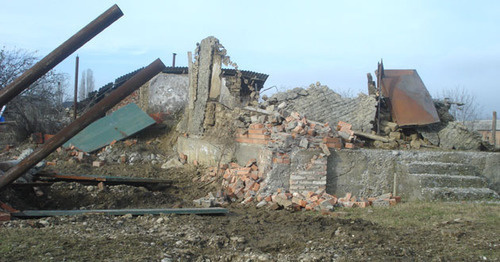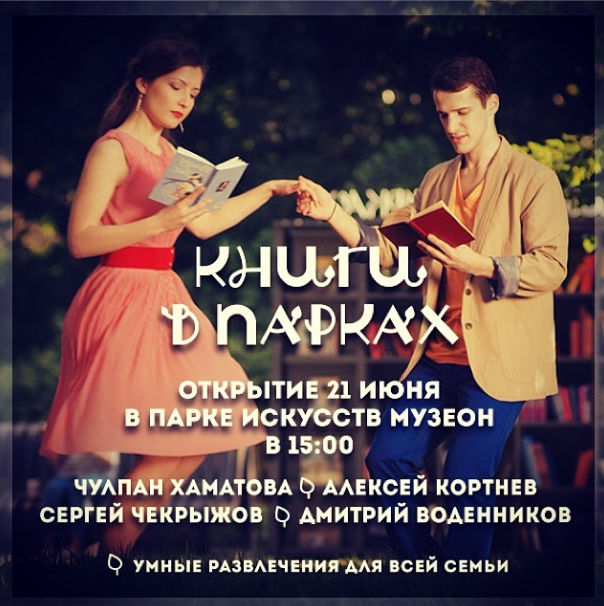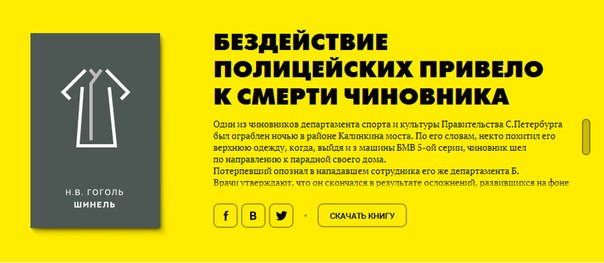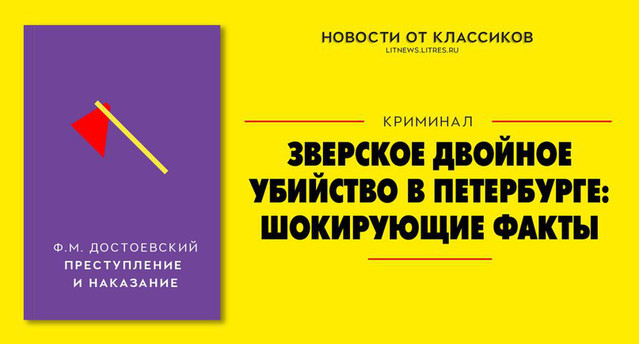Welcome to our column, Russia Update, where we will be closely following day-to-day developments in Russia, including the Russian government’s foreign and domestic policies.
The previous issue is here, and see also our Russia This Week story The Guild War – How Should Journalists Treat Russian State Propagandists? and special features ‘Managed Spring’: How Moscow Parted Easily with the ‘Novorossiya’ Leaders, Putin ‘The Imperialist’ A Runner-Up For Time’s ‘Person of the Year’ and It’s Not Just Oil and Sanctions Killing Russia’s Economy, It’s Putin.
Russia’s Investigative Committee has opened a criminal case against Alexandrina Markvo, wife of Vladimir Ashurkov, former executive director of the Anti-Corruption Fund run by opposition leader Alexey Navalny. The charges stems from government contracts she obtained for planning literary events in Moscow’s parks involving prominent writers associated with the opposition who are themselves now being interrogated. Both she and her husband have fled to the UK where they are seeking political asylum.
Please help The Interpreter to continue providing this valuable information service by making a donation towards our costsâ€.
UPDATES BELOW
Fifteen homes of relatives of the terrorists who were killed in a gunfight in Grozny on December 4 have been destroyed, Caucasian Knot reports, citing Memorial Human Rights Center.
They confirmed earlier reports by Caucasian Knot about the burning down of houses of families of seven of the militants in Gudermes District. Earlier we reported on the destruction of the Shabanovs’ home in Koshkeldy in the Gudermes District.
Other towns affected were Alpatovo in Naursky District; Geldagan in Kurchaloyevsky District; Ishkhoy-Yurt in Gudermes District and in the city of Gudermes itself, says Memorial.
In Alpatovo, the home of Imran Utsimiyev was burned down. He is the father of 18-year-old Baysangur who was among those in the Grozny attack. The family fled into hiding.
One house in Geldagan in the Kurchaloyevsky District was destroyed, although it was empty; the family had fled already last year.

According to villagers, Sultan’s son Adam was long associated with members of the “unlawful armed formations,” as authorities call the militant groups. In September 2010, the police already burned down the Vakhayev’s house. After that, the family built a new one, said Memorial.
In another incident in Ishkhoy-Yurt, on the night of December 20, police razed the empty home of Masara Vadalova. One of her sons, Aslambek, had joined the armed underground in the first Chechen war.
In Gudermes, the home of Ruslan Magomadov was destroyed. His son was among those killed in the December 4 attack in Grozny. The family fled afterwards.
The human rights activists point out that it is police taking part in the destruction of homes, not unidentified arsonists. They are following orders issued by Chechen leader Ramzan Kadyrov, who publicly called for the burning down of the homes of any relatives of those in the December 4 attacks. It looks as if in their eagerness to comply, police have gone further and targeted any house they can find related to any insurgency in the last decade.
While at his year-end press conference, Putin said that no one, even the head of Chechnya could commit extrajudicial actions of this type, they have continued because Putin has left the management of Chechnya to Kadyrov, and explained away his excesses by saying they are understandable given that he lost his comrades in the war on terrorism.
— Catherine A. Fitzpatrick
About 15-20 state employees have staged a protest in downtown Moscow this evening, blocking the main road to the center, Meduza.io and New Times reports, citing photojournalist Philipp Kireev. No arrests have yet been made, but demonstrators clashed with some building guards already.
The doctors and teachers are demanding subsidized housing contracts.
Doctors have been demonstrating since November 30, when the city of Moscow cut its health care budget and slashed staffs and salaries. Some medical personnel who camped out in front of the United Russia party office were arrested last week but quickly released without charge.
Translation: They went inside. The guards, apparently, are calling the police.
With the use of the hash tags #January15 and #Manezh, New Times was making the point that these protests are preludes to the large opposition rally planned for January 15 to protest the sentencing of opposition leader Alexey Navalny.
Translation: They’ve already blocked off Sadovoye Ring Road (Moscow is in training).
Several hours earlier, another group of protesters blocked the
Sadovoye Ring Road with banners calling for the release of Mokhnatkin.
Right now there are several people with firecrackers and a banner who have blocked off Sadovoye for the release of Mokhnatkin.
Sergei Mokhnatkin is a political activist who was sentenced in absentia to 4 years and 6 months of labor colony on charges of assaulting police during a demonstration.
— Catherine A. Fitzpatrick
Ever since activists learned that opposition leader Alexey Navalny was threatened with 10 years of prison on politically-motivated charges, they have vowed to protest on Manezh Square near the Kremlin in the center of Moscow.
But they decided not to apply for a permit — they would be unlikely to get it for that location and that issue — and said they would hold a “people’s assembly,” a kind of walking discussion that is supposed to fly under the radar of Russia’s restrictive laws on demonstrations.
The Facebook page created by Leonid Volkov for the event was blocked by state censors – and Facebook, which agreed to comply with the unlawful Russian request in the interests of business.
So activists responded by making another page, which Facebook quietly decided not to block, and other web sites and campaigns around the theme of gathering on the square.
One popular tweet and Facebook meme shows other anniversaries that could be marked on January 15 — the 220th anniversary of birth day of Russian poet and playwright Alexander Griboyedov; the 124th anniversary of the birth of Russian poet and essayist Osip Mandelshtam; Martin Luther King, Jr., who might have turned 86 that day had he not been assassinated in 1968.
So the joke — funnier with Russian grammar — is that while these heroes might have 220 or 86 years — Navalny may get 10 years.
A lot of people are remembering January 20, 1991 on Manezh Square, when a record 100,000 people turned out tothe Soviet army crackdown against
the nationalist Lithuanian authorities. Lithuania had been the first
Baltic Republic to proclaim its independence in March 1990. Many called for the resignation of Soviet President
Mikhail Gorbachev.
We were there, and it was so cold that it was impossible to write
in a reporter’s notebook. One thing that stood out was a fake foreign
news crew with a badly-stenciled CBS-like eye that was in fact filming
protesters. Reprisals were to come later, and the political prisoners
were not all released until after Boris Yeltsin took power following the
failed coup of August 1991.
(The picture in the tweet above was taken from that time.)

Photo by Vitaly Armand/AFP/Getty Images
— Catherine A. Fitzpatrick
Although its members have at times seemed reluctant, the Eurasian Economic Union was finalized today to include Belarus, Kazakhstan, and Armenia, AP reported.
Yesterday Kazakhstan’s President Nursultan Nazarbayev met with Ukrainian Petro Poroshenko to stress the importance of the Minsk agreement and arrange for delivery of coal from Kazakhstan to Ukraine — which itself was a coal-mining center until disruption of operations due to the war in southeastern Ukraine.
The Ukrainian and Kazakh leaders also resumed military and technical cooperation, which was seen as a move to create relationships outside the Moscow vortex, even as Ukraine voted to abolish its non-aligned status.
Ukraine was once invited to the Eurasian Customs Union, but has now rejected the offer in favor of the European Union’s Association Agreement.
Belarusian leader Alyaksandr Lukashenka also visited Kiev this week, not only to make amends before the Customs Union meeting but indicate that Belarus seeks Ukraine’s help in improving relations with the West. Since the 2010 crackdown on the Belarusian opposition following rigged presidential elections, and the continued imprisonment of alternative candidate Nikolai Statkevich and other activists, the West has shunned Belarus.
Since Putin launched his war on Ukraine, forcibly annexing the Crimea and sending tanks and troops into the Donbass, the Customs Union has shown definite cracks.
While Armenia, Belarus and Russia all voted against a UN General Assembly resolution to condemn the illegal annexation of Crimea, Ukraine co-sponsored the resolution, Georgia voted in favor, and Kazakhstan and Uzbekistan abstained. Kyrgyzstan, Tajikistan and Turkmenistan were absent from the room during the vote.
Lukashenka has made openly critical comments about Russia’s trade pressures, including a ban on milk and meat products it says are tainted. And today the dictator didn’t lose the opportunity even within the festive ceremony to blast Moscow for restricting exports to Russia.
The new union is supposed to bring 170 million people together and have a combined economic output of $4.5 trillion, enabling benefits for its members, says AP. But so far it has only led countries like Belarus — with weak, unreformed economies — to catch the ruble virus and suffer currency devaluation. Kazakhs have poured over the Russian border to snatch up cheaper goods since the ruble crash, but labor migrants from Kyrgystzan and other Central Asian countries are now forced to return home, as up to a third of their wages have been lost as they exchange money to send home remittances.
It remains to be seen whether the Eurasian Customs Union will have any more coherence and purpose than the Commonwealth of Independent States which was created after the collapse of the Soviet Union. Certainly the persistence of the war in Ukraine will make any Moscow-led enterprise a dubious venture, especially as the other post-Soviet states are mindful of the violation of the Budapest Memorandum of 1994, where states gave up their nuclear weapons to Russian in exchange for assurances of their independence.
— Catherine A. Fitzpatrick
Russia’s Investigative Committee (IC) opened a criminal case on
charges of embezzlement against Aleksandrina Markvo, the common-law wife
of Vladimir Ashurkov, former director of the Anti-Corruption Fund of
opposition leader Alexey Navalny, TV Rain reported, citing the IC’s web site.
The
case is related to Markvo’s organization of a series of events and
literary competitions called “News from the Classics” to raise the
profile of the Russian classics with public readings in parks. Russian
authorities believe that a portion of the funds for the project, which
involved 7 contracts with the Federal Agency for Press and Mass
Communications and the Department of Mass Media and Advertising of the
city of Moscow totalling 13 million rubles ($233,475) and 51 million
rubles ($915,941) respectively, was used to fund the opposition.

The
move was widely seen as retaliation for Navalny’s anti-corruption work
that has targeted top Kremlin officials, as well as a crackdown on
liberal intelligentsia associated with the opposition who have led
protest marches since 2011.
Markvo and Ashurkov fled Russia earlier this year
after charges were made that he had embezzled funds from Navalny’s
mayor campaign, and they are seeking political asylum in England. She
recently gave birth to a daughter.
According to investigators,
Markvo, as the future owner of the company Byuro-17, used free city
facilities for holding a literary event although allegedly in official
accounts, the space was shown as rented and associated with event costs
of more than 2 million rubles (US $36,460).
Investigators claim that Markvo did not hold the festival as
claimed, but instead mailed prizes to the awardees or told them to pick
them up, and then embezzled the funds to use for personal purposes. She
is accused of not providing four prizes that were supposed to be more
expensive items like a laptop or tablet, but instead giving out
electronic book readers, and pocketing the funds.
Writers and
other creative intellectuals who were in the Coordinating Council of
Opposition and the League of Voters took part in the competition and
thus allegedly received funds from it.
The project included a web site
where organizers described Russian classics with modern news headlines,
i.e. “Tragic Death of Doctor in Failed Love Triangle” for Ivan
Turgenev’s Fathers and Sons or “Police Inaction Leads to Death of
Bureaucrat” for Nikolai Gogol’s The Overcoat or “Double Murder in St. Petersburg; Shocking Facts” for Fyodor Dostoevsky’s Crime and Punishment. The classics can be downloaded for free on the site.

According
to Lenta.ru, writers Dmitry Bykov, Lev Rubinshtein, Viktor
Shenderovich, Boris Akunin, and television anchors Mikhail Shats and
Tatyana Lazareva were among those who benefitted. Rubinshtein and
Shenderovich have already been summoned for interrogation. Akunin left
Russia after receiving a summons, Lenta.ru reported.

Vladimir
Markin, spokesman for the IC said investigators obtained documents
allegedly indicating Shats and Lazarev received about a million rubles
($18,057) in 2011 from Byuro-17; but refused to give testimony,
citing Art. 51 of the Russian Constitution, which bars
self-incrimination:
Such a reaction forces one to wonder just what these
persons did in a project organized by Markvo and her trusted associates,
including Vladimir Ashurkov, who gained scandalous notoriety in
connection with (Alexey) Navalny’s election campaign.
The tabloid TV channel LifeNews, close to intelligence and law-enforcement, began an investigation of Markvo
in November, claiming that she had been using funds obtained from
government tenders to finance Navalny’s Anti-Corruption Fund, where her
common-law husband, Vladimir Ashurkov, serves as director. LifeNews
claimed that Byuro-17 earned 100 million rubles ($182,164) from the
state tenders and Ashurkov’s company Slava also allegedly received 30
million rubles ($546,906).
Also to be investigated in the case is
Markvo’s driver Andrei Mylnikov and Olga Voznaya, formally listed as
director of Slava, although investigators claimed that Markvo was the
actual director.
— Catherine A. Fitzpatrick